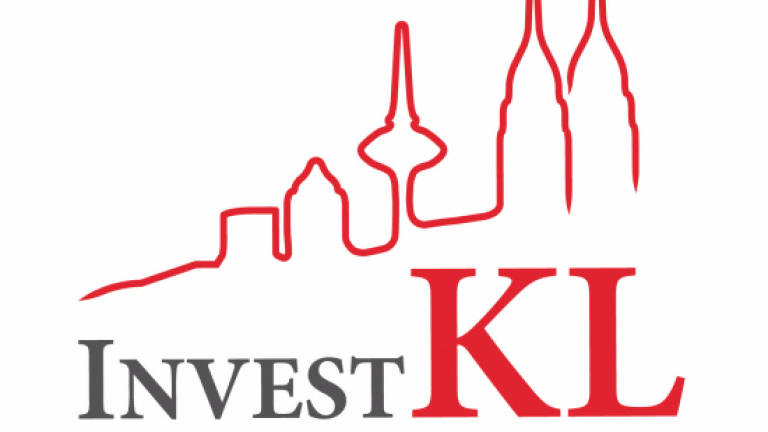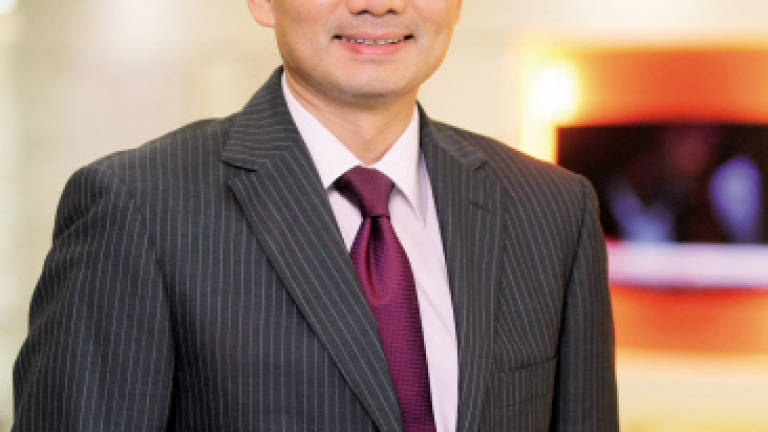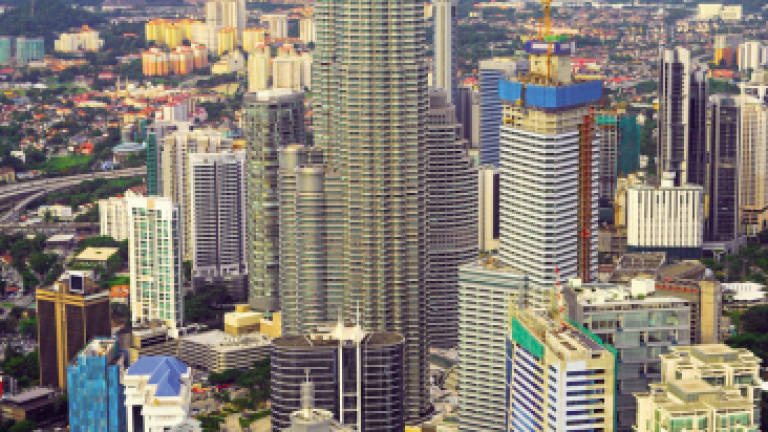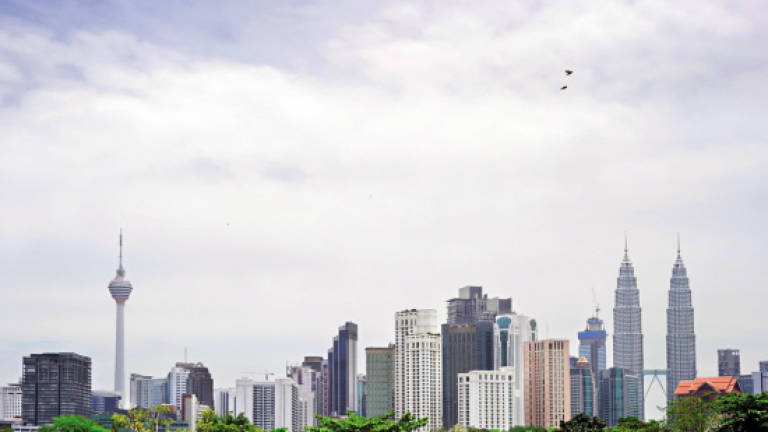Modern city DNA - Part 2




HAVING featured previous articles on the uprising of mega cities, exploring the DNA of super cities last week, today we examine Malaysia’s very own Kuala Lumpur and Selangor, on its way to reaching developed nation “super city” status.
InvestKL
For a start, we look at Kuala Lumpur and examine InvestKL, a government-established entity created under the purview of the Ministry of International Trade and Industry (Miti) and Federal Territories Ministry, tasked to steer KL city to attain this goal.
InvestKL is established to attract large global multinational firms like Fortune 500 and Forbes 2000 companies, to set up their head quarters, operational offices, international procurement centres and regional distribution facilities/shared services centres in the vicinity of the Klang Valley/Greater Kuala Lumpur (Greater KL).
InvestKL will promote and position Kuala Lumpur as the ideal location for multinational companies to set up their businesses in.
To garner the attention of these multinationals, InvestKL, which is accountable to the Performance Management and Delivery Unit (Pemandu) under the Prime Minister’s Department, set out to work with various government ministries, entities and agencies to formulate attractive fiscal packages to help corporations identify business opportunities and set up high value operations to develop their competitiveness in Southeast Asia and globally, right here in KL city itself.
Fundamental principles
Sitting in the CEO’s seat and heading this gargantuan task is InvestKL Corporation CEO Datuk Zainal Amanshah who shares insights on InvestKL.
Zainal said that the idea stemmed from the Economic Transformation Programme (ETP) launched in Sept 2010, which was formulated as part of Malaysia’s National Transformation Programme. The ultimate aim: to elevate the country and raise its status to become a developed nation by 2020. The target of the ETP: to achieve this via identifying 12 National Key Economic Areas (NKEAs) – sectors which had the potential for private sector-driven growth and economic opportunity that could propel Malaysia to achieve this high-income, developed-nation, globally competitive status. One of these areas is Greater KL.
Once each of the 12 NKEAs were identified, each is to offer private sector involvement and investment opportunities through 9 Entry Point Projects (EPPs). EPP 1 is aimed at attracting 100 of the world’s dynamic firms to establish operations in Greater KL by 2020. To help realise the EPP 1 mission, InvestKL Corporation, otherwise known as InvestKL is established, a specialised investment agency set up by the Malaysian Government.
“InvestKL is mandated to attract 10 multinational companies (MNCs) a year, to invest in Greater KL. Since its establishment in 2010, we have successfully attracted multinational companies with total investment close to RM9 million,” shared Zainal. And these are projected to create over 9,000 regional jobs he adds.
The big picture
Zainal shares the plan on how InvestKL intends to succeed its Herculean tasks. “Several approaches were identified to attract the top-tier Fortune 500 and Forbes 2000 MNCs to invest in Greater KL. These include deepening our existing collaboration with our alliance partners and foreign embassies; working closely with government agencies like Mida and Matrade; plus leveraging on existing relationships between Malaysian embassies and the local business communities in countries these foreign companies are based in,” he shares.
Grateful is Zainal for the support by InvestKL’s stakeholders and partners in “selling Greater KL at global level via one-on-one meetings and focus group investment engagements.
“We never sit on our laurels and are never satisfied with just a list of identified investments. Instead, we constantly build and add potential investments to our funnel to ensure we have enough leads to achieve our KPIs,” the CEO shares.
Serving as an ideal location to set up one’s business hub, Greater KL boasts:
1) a central location;
2) credible spaces;
3) an area robust with multi-lingual pool of talent;
4) a location that offers cultural diversity;
5) a territory with game-changing infrastructure development;
and more.
The giants are here
“Over the years, there have been many foreign companies who have chosen Greater KL as their investment and expansion destination. Some of the recent ones include German-based industrial technology provider Voith; Japan’s creative content publisher Kadokawa; visual effects studio Bandai Namco Studios; and China Railway Group ... just to name a few,” Zainal shares. Others include US-based Oracle Corporation, Swiss multinational healthcare company Roche Holdings AG and China-based tech firm Huawei Technologies – “all using Greater KL to move up the value chain,” Zainal adds.
Of the above, we learn that Oracle’s recent decision to set up a digital sales hub in Greater KL will create at least 200 new jobs while Roche is reported to spend some RM110 million over the next two years on expansion of its global services centre here in Malaysia which will serve the APAC region. This will also create some over 260 jobs. China Railway will set up its regional hub here in Bandar Malaysia. “Greater KL is also home to Huawei’s customer solution integration and innovation experience centre. The facility
was also designed as an ICT hub to drive the industry’s open eco-system and accelerate digital transformation in Malaysia,” added Zainal.
To date, Zainal informs that 64 MNCs have set up operations here, with approved and committed investments amounting to RM8.9 billion (3.2% or RM3.2 billion already realised). These are expected to create more than 9,335 high-skilled jobs, 5,233 or 56% already on the payroll. While 17% account for foreign/expat talent, the remaining 83% are local.
Super city in the making
All the above provide encouragement and inspiration for the team at InvestKL. “It also shows that Greater KL and Malaysia have the right ingredients to attract MNCs. Although we managed to secure 13 MNCs last year, we have brought our targets down for 2017 looking at external headwinds, including uncertainties over US president Donald Trump’s policies, major elections in European countries, and the call-off of the Trans-Pacific Partnership Agreement,” Zainal shared. Still, he says that the agency is looking at other regional countries for investments.
To furnish a better picture of what Greater KL will look like in the near future, we share excerpts from Knight Frank Malaysia executive director Judy Ong’s article. “Malaysia is the fifth largest recipient of foreign direct investment (FDI) inflow in East and Southeast Asia according to the UNCTAD 2015 World Investment Report. By 2020, the skyline of Greater KL is set to change dramatically with scheduled completions of the iconic 118-storey Merdeka PNB118 and the 92-storey Signature Tower in the financial district of Tun Razak Exchange (TRX). Moreover, the TRX, primed as the country’s financial and banking district, will also house the TRX Lifestyle Quarter which will include a luxury hotel, six residential towers and a retail destination connected to the TRX Park and dedicated Mass Rapid Transport (MRT) stations. Other notable projects to change the landscape include Bukit Bintang City Centre, Bandar Malaysia, rejuvenation of Damansara Town Centre and the Pavilion Damansara Heights project.” These, plus many more international hotel brands coming in, and with the completion of the additional 140km rail link of the MRT and LRT lines by 2022 – mobility and connectivity within the region will be enhanced, transforming Greater KL into a mega city.
Follow our column next week on the other super city in the making and InvestSelangor, which is tasked to take it to its greater heights.
Principle activities of InvestKL include:
»to drive;
»to promote;
»to attract;
»to stimulate; and
»to facilitate all types of investment activities in Greater KL and establish links and networks for investment activity. Furthermore, the agency is also responsible for identifying appropriate measures, resources, programmes and incentives to attract companies/businesses and/or corporations to Malaysia and help these companies facilitate the investment process in a smooth and hassle-free manner as possible.
Other responsibilities include:
»formulating competitive fiscal packages;
i»ntroducing investors to various specialised business hubs in Greater KL;
»provide post-investment services;
»propose talent management programmes;
»recommend the best investment locations; and
»help investors with the transition and to blend in with the local systems and culture via familiarisation programmes.